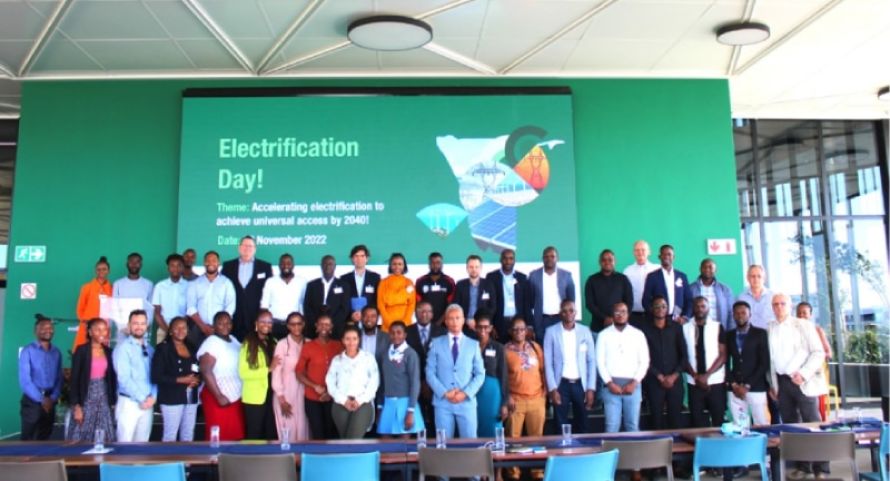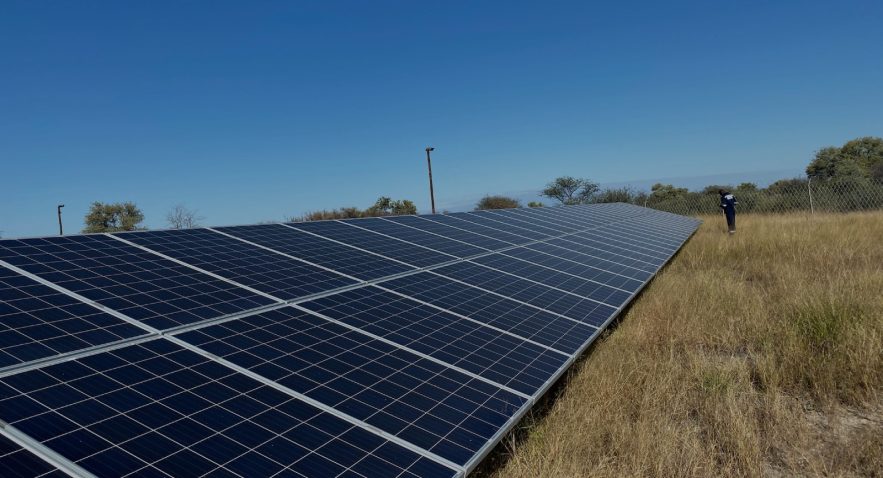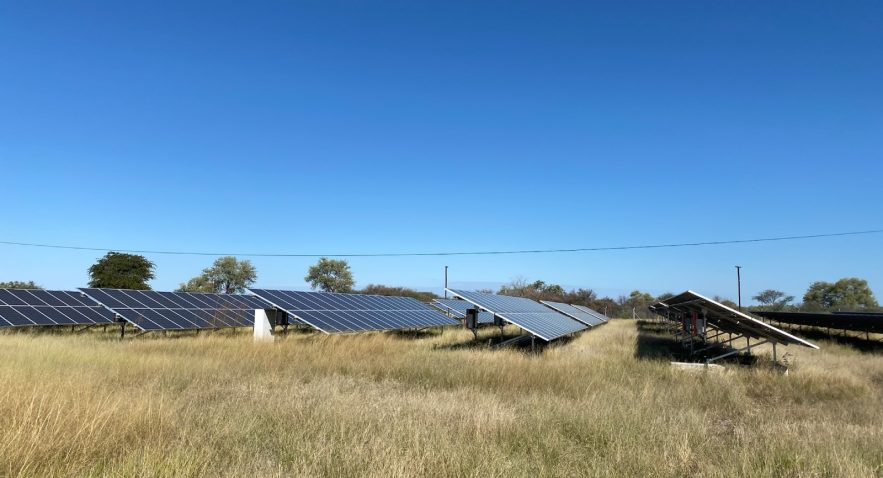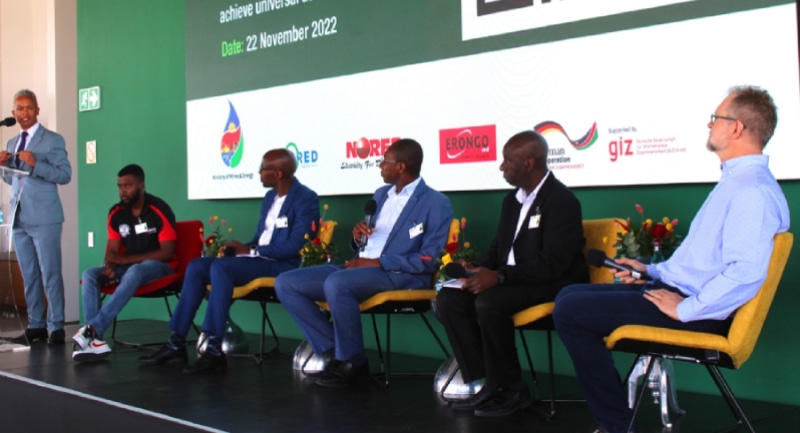Electrification Day: Stakeholders discuss new solutions to accelerate electrification.

Together with the Namibian Ministry of Mines and Energy (MME), Green People´s Energy (GBE) organized Namibia’s first Electrification Day. The goal and purpose of this prestigious event was to bring together different national and international experts and stakeholders to discuss rural electrification.
Student Olivia Mbangula from Okongo Secondary School made clear why this is necessary.”If we have to study in a school without electricity, we can’t work with our notebooks or connect to the Internet,” said Olivia Mbangula in front of several dozen energy experts, politicians and representatives of NGOs in the room. For students like her, education is a question of existence and their future. Without electricity, they have significantly fewer opportunities than those who can learn at a school with electricity.
However, approximately 300,000 households in Namibia have no access to electricity that is equivalent to only 50 percent electrification rate. They live in the urban fringes or in rural areas. “Our problem is that most of them live in remote, very sparsely populated areas. That’s what makes their energy supply so difficult,” says Lovisa Neshila, technical advisor to Green People´s Energy Namibia (GBE). But the low electrification rate has a massive impact on the economic development and social well-being of people without energy access.
This makes it even more important for all the key players in the energy sector to pull together, coordinate their actions and harmonize their approaches towards universal electricity access. This is one of the reasons why the Namibian Ministry of Mines and Energy (MME) supported by GBE held the first Electrification Day on 22 November 2022.

At the Electrification Day, policymakers, energy experts, and representatives from international organizations discussed last-mile barriers, how to work with Namibian electricity providers, and how the banking sector and financial institutions can support off-grid electrification. The government’s national electrification policy has set a target of universal access to energy by 2040, laying the groundwork. “However, implementation of off-grid electrification remains slow,” says Lovisa Neshila a GIZ Technical Advisor.
A representative from Erongored, which supplies electricity to the Erongo region west of Namibia, explained why this is so difficult. Erongored must cover an area of 65,000 square kilometres, which is slightly smaller than the Netherlands and Belgium combined. “We reconnected 1,900 households in rural and semi-urban areas,” said Sam Markus, project manager at Erongored. Which amounted a cost of 31 million Namibian dollars, equivalent to 1.65 million euros. There is little or no return on investment for these capital-intensive electrification projects. “Many residents draw a pension and receive a subsidized low tariff, so electrification brings us little economic return,” Sam Markus added. Jason Lyambo from NORED and Silvester Wayiti from CENORED described electrification in rural areas in a similar way.

On one panel, national and international experts discussed the barriers of the “last mile”. Jens Jaeger, Director of Policy & Business Development at Alliance for Rural Electrification explained ideas on how to minimize risks in supply and presented positive examples from Kenya, Nigeria, and Senegal. Joined on the panel discussion was Jason Lyambo, Sam Markus and Silvester Wayiti who explained at depth the challenges of last mile electrification projects in Namibia.
In addition, representatives from the World Bank, GET.invest, KfW and the EU discussed how accessing concessional funding will make electrification projects economically viable. “What would really be helpful for Namibia given great amount of work that the government have put in developing a national electrification policy ,strategy and electrification fund, is really bringing clarity by developing short term goals for example a 5 year plan on the overall financing framework and involve all parties so that they can work together to bring forth electrification projects”, Nadia Taobana from the World bank said during a panel discussion.

“It is indeed true that off-grid solar is critical as it enables us to extend basic energy services to the last mile rural poor raising their quality of life. However, off-grid solar will not solve our electricity access issues and for that matter, neither will a top-down approach to connect every household to the grid”, said Lovisa Neshila from GBE Namibia. She added: “To solve the energy poverty, we need to deliver reliable, affordable electricity at scale to power economy-wide job creation by expanding electrification through on-and off-grid solutions.”
In conclusion it can be agreed that it is important to exchange ideas on a regular basis. This was also the view of the representatives of the Ministry of Mining and Energy and the attendees. Electrification day will become a yearly event creating a platform where all stakeholders can share their successes and lessons learned. This is the beginning of Namibia’s journey in achieving universal access by 2040.





